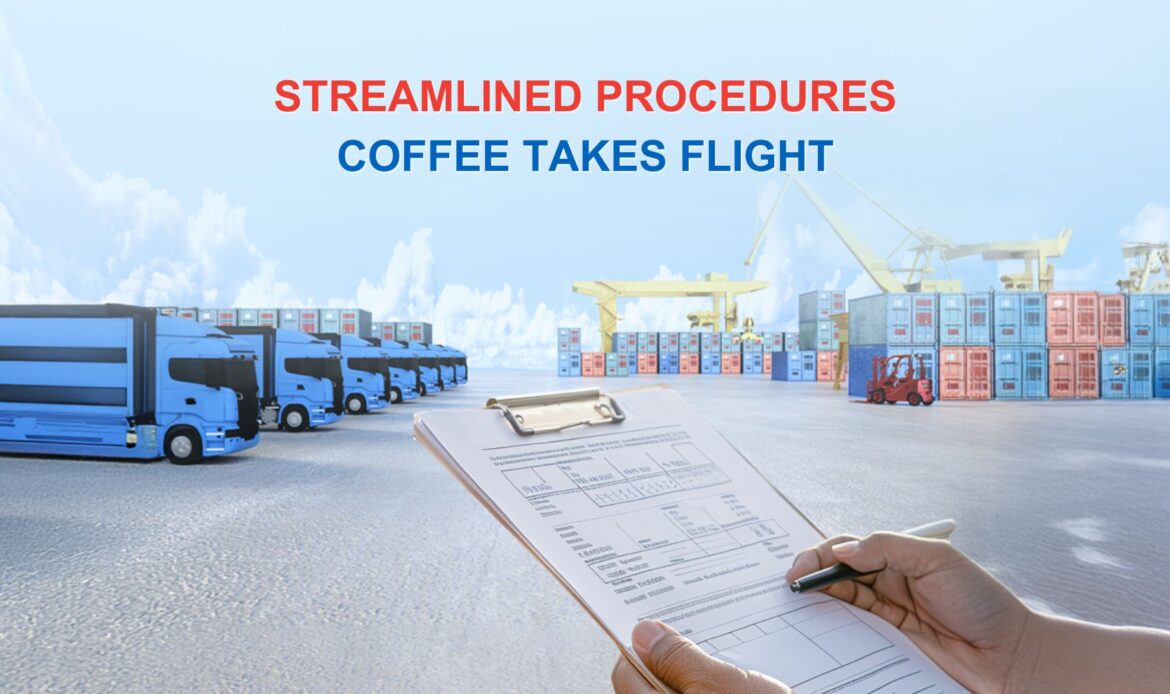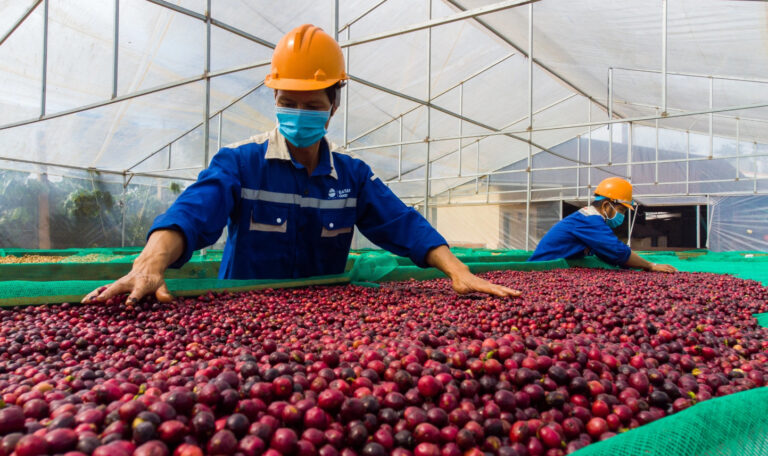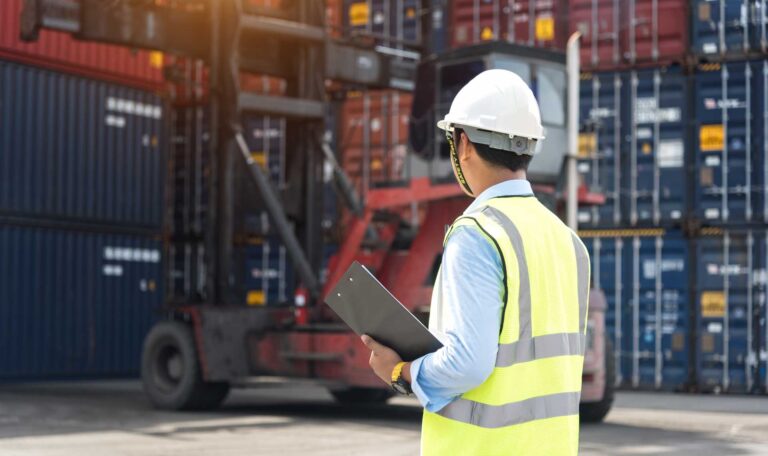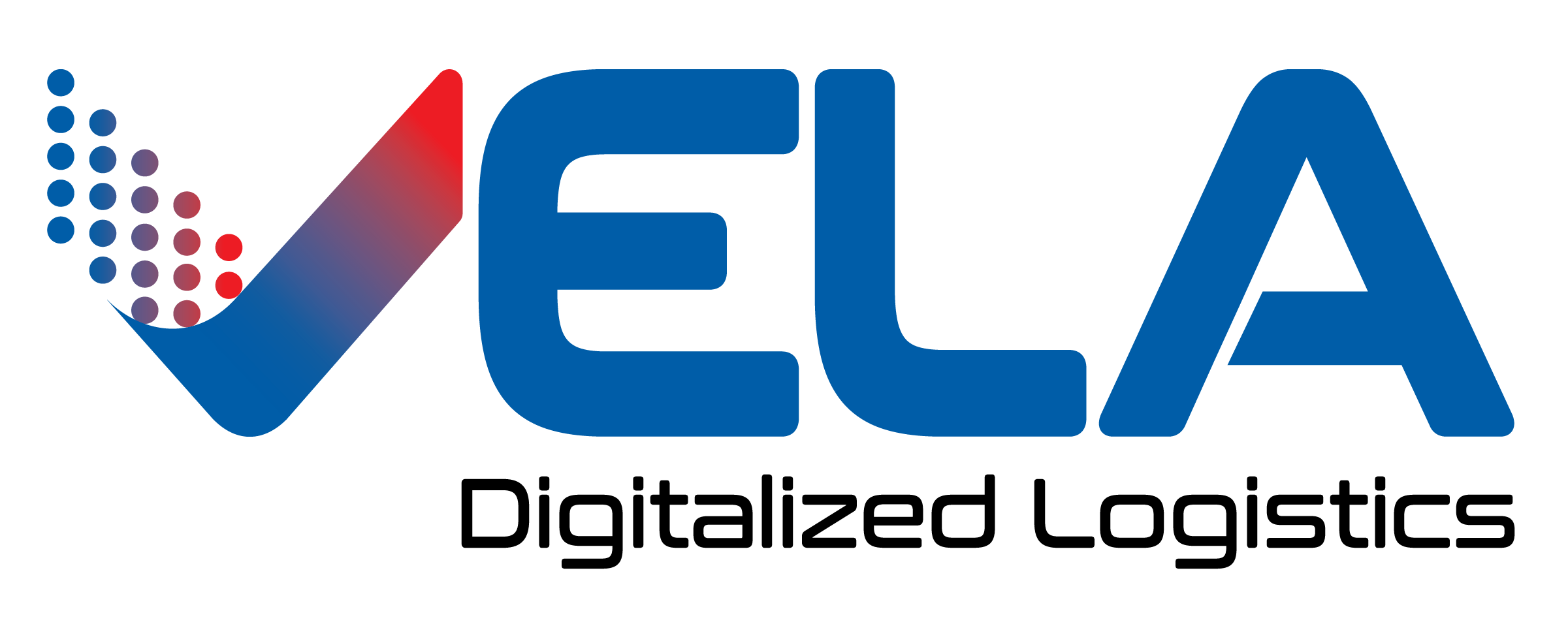Optimizing customs clearance for coffee exports

Carrying out customs clearance for coffee exports is a crucial step for businesses to bring their products to international markets. With specific requirements for phytosanitary inspections, quality standards, and food safety, this process demands meticulous preparation to ensure shipments are cleared swiftly and in compliance with regulations.
Vietnam is a global coffee export powerhouse
According to statistics from the General Department of Customs, Vietnam exported nearly 1.2 million tons of coffee in the first 11 months of 2024, achieving a turnover of $4.84 billion. Although export volume decreased by 15.4% compared to the same period in 2023, turnover rose sharply by 32.8%, surpassing the 2023 record and nearing the $5 billion milestone. The top three markets for Vietnamese coffee are currently Germany, Spain, and Italy.

The growth in export turnover underscores the significant position of Vietnamese coffee in the global market, meeting the rising demand of international consumers. This success not only brings economic benefits to farmers but also elevates the reputation of Vietnamese coffee.
Exporting businesses should seize this opportunity to expand market share and optimize their business strategies. Specifically, focusing on improving product quality, building brand identity, and exploring potential markets will help Vietnamese coffee maintain its competitive edge and meet the increasingly stringent requirements of the international coffee market.
The importance of customs clearance for coffee exports
Customs clearance is a vital step to ensure goods are legally exported to international markets. The process verifies the validity of documentation and ensures the coffee complies with phytosanitary and quality standards set by importing countries. Properly completing the procedures minimizes risks of shipment delays or returns while optimizing costs and transportation time.
Furthermore, compliance demonstrates a business’s commitment to product quality and legal regulations. This contributes to building a sustainable brand and maintaining competitiveness in the demanding coffee export market.

The process of customs clearance for coffee exports
To facilitate smooth customs clearance for coffee exports and avoid fines or delayed shipments, businesses should follow these steps:
Step 1: Gather and prepare customs documentation
Businesses must prepare the following documents:
- Customs declaration form
- Commercial invoice
- Packing list
- Sales contract
- Bill of lading
- Certificate of origin (C/O)
- Phytosanitary certificate
Step 2: Submit the customs declaration
Register the customs declaration online via the VNACCS/VCIS system or directly at the Customs Sub-department.
Step 3: Inspection and customs clearance
Once the documents are submitted, the customs system will categorize shipments into one of three inspection lanes:
- Green lane: accurate documentation allows immediate clearance without physical inspection.
- Yellow lane: requires additional documentation or detailed inspection, potentially causing delays.
- Red lane: involves physical inspection of the goods at the port, leading to increased costs and delays.
To minimize the risk of yellow or red lane inspections, ensure the documentation is accurate and complete from the outset. Once approved, customs clearance will be granted, and businesses must complete all applicable fees as required.
Step 4: Transport the goods
After clearance, businesses can transport goods from storage to the export port using suitable vehicles, ensuring timely delivery to partners and customers. During transportation, businesses can monitor shipment status via the electronic customs system or real-time tracking services provided by logistics partners to proactively address any issues.
Key considerations of customs clearance for coffee exports
Exporting coffee is a complex process that requires businesses to ensure product quality while fully complying with regulations on labeling, packaging, and transportation. Effective risk management and collaboration with professional service partners can optimize the process, minimize errors, and enhance competitiveness in the international market.
Ensuring coffee quality
Before export, businesses must thoroughly inspect the coffee for factors such as moisture content, cleanliness, and bean size. Ensure the coffee is free of contaminants, prohibited chemicals, and meets food safety standards.
Meeting labeling and packaging requirements
Businesses must adhere to customs clearance regulations for coffee exports and comply with requirements on product labeling and packaging, including:
- Detailed information on product origin, ingredients, expiration dates, and quality certifications, tailored to the destination market.
- Ensuring packaging is compliant, protecting product quality during transport, and aligned with the standards of the importing country.
Managing transportation risks
Coffee is a sensitive product prone to damage from temperature and humidity fluctuations. Businesses should use suitable transportation methods, such as refrigerated containers, to preserve quality. Additionally, monitoring shipments ensures timely resolution of any issues during transit.
If businesses lack resources or experience in coffee export activities, partnering with a professional customs clearance service provider is a prudent choice. These providers help businesses complete procedures quickly, accurately, and with minimal risks.

As a reliable partner offering professional customs clearance for coffee exports solutions and an integrated digital logistics platform, VELA simplifies the customs clearance process, ensuring coffee shipments are exported on schedule while minimizing additional costs.
- Support for electronic customs declaration, helping businesses speed up the customs clearance process and minimize errors.
- Smart digital platform allows tracking of shipment status in real time 24/7.
- Experienced experts are ready to advise and support in matters related to tariffs, valuation and export regulations according to current laws.
Customs clearance for coffee exports is a critical step requiring thorough preparation and strict adherence to procedures to ensure timely delivery. With VELA’s advanced digital platform, businesses can confidently engage in coffee export activities, enhancing their competitive advantage in the global market.
